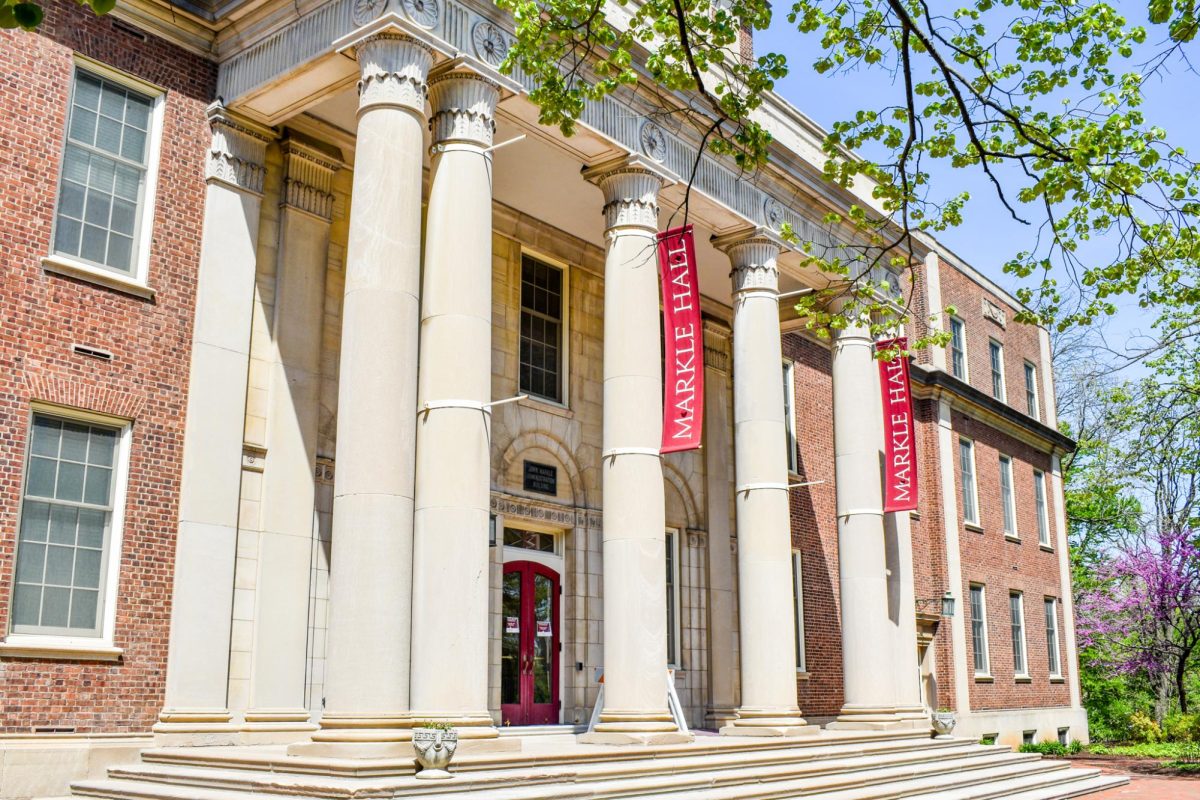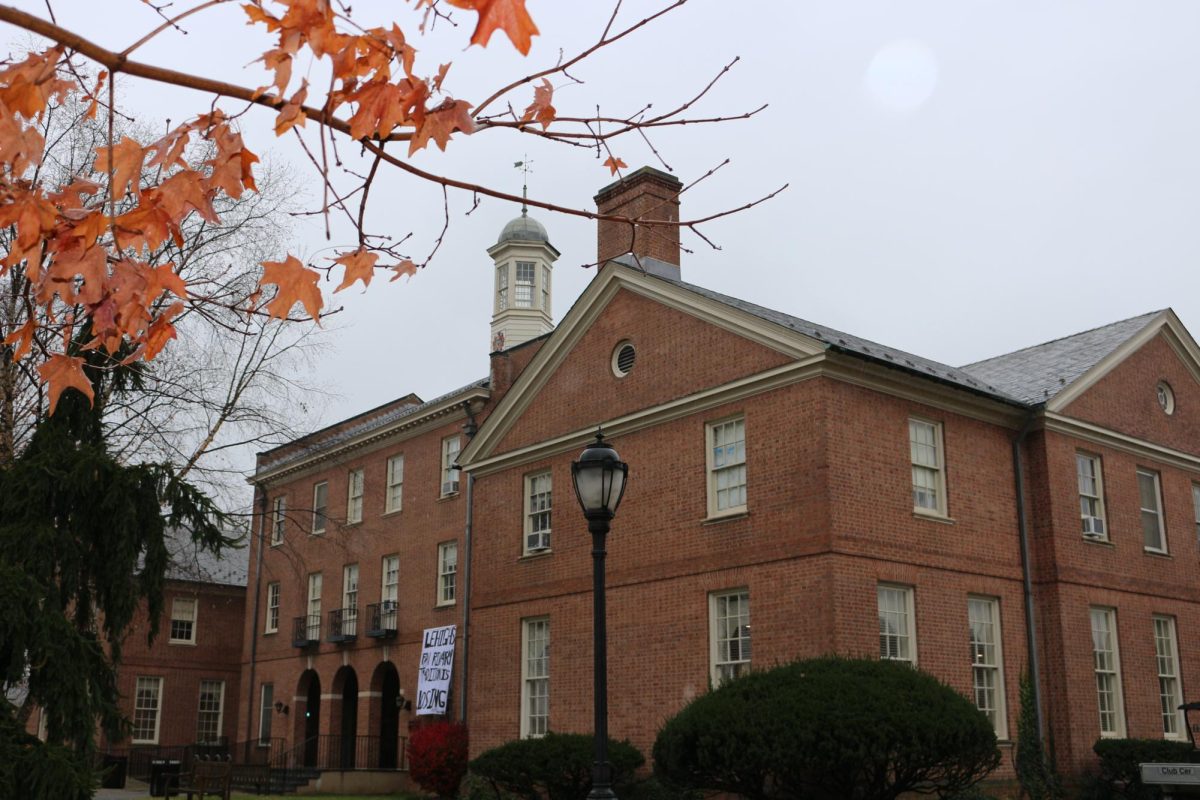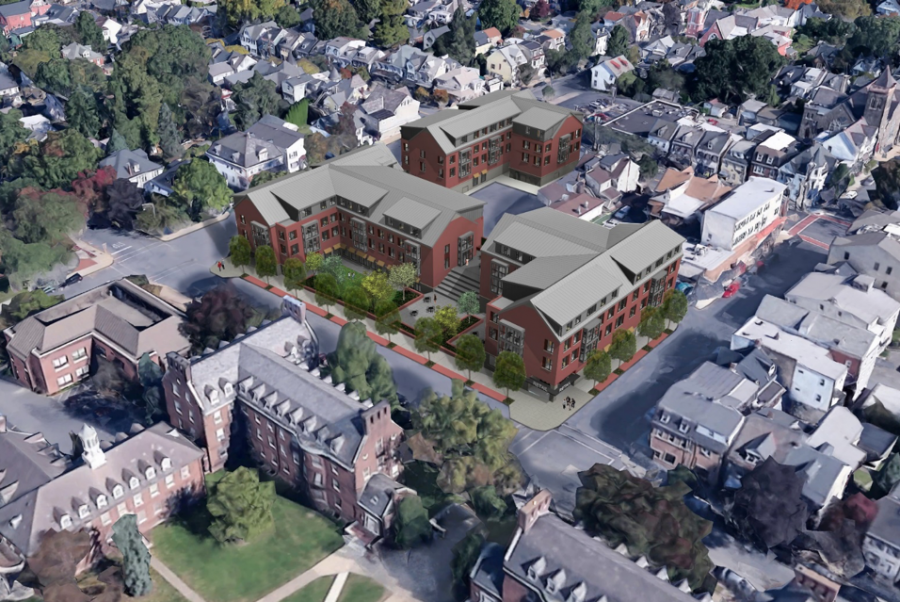There was no vote on Lafayette’s expansion plans at the Easton City Council meeting Wednesday, but community members and college representatives still took four hours to dispute and discuss the college’s proposed expansion plans.
College Hill residents voiced concerns at the meeting that there was no foreseeable way to stop the college from buying more properties and knocking them down for further expansion.
As the plans currently stand, the college has proposed a four-story, 55-ft. dormitory with “mixed use” to be built on McCartney St. The mixed use accounts for the retail space the college wants to build on the first floor of the structure, which could be used by the outside community.
Last week, Lafayette presented its plans to the Easton Planning Commission to gain a positive recommendation for approval by the city council. The college failed to do so due to its wording of the proposed building and neighborhood pushback.
Lafayette returned to this week’s meeting with what it believed could fix the problem.
“There was a question raised by the planning commission last week that really seemed to influence the planning commission about the ambiguity of the use of the term dormitory and what exactly dormitory might mean,” President Alison Byerly said.
“The amendment that was introduced [tonight] simply clarifies that the mixed use dormitory as intended and as described in our proposal would not alter the overall meaning of the term dormitory” in the rest of the city, she said. The retail included in the mixed use dormitories would be “limited to the kind of retail that is already allowed in that zone.”
The college said that it has continued to be open and compromise with the community on several fronts. However, the concerns voiced were ones heard before.
Paul Felder, long-time Easton planner, College Hill resident and Lafayette professor, said he took issue with the way the college went about forming these plans in the first place.
“In my experience, it’s quite unusual for a client to say to an architect, ‘You don’t have to study the comprehensive plan or the existing zoning laws. Just design a building on this site and when you’re done, we’ll make a list of the zoning changes and tell the city we need to change the zoning,’” Felder said.
The college refuted this claim, and Vice President of Finance Roger Demareski said they’ve consulted the community almost every step of the way.
“We’ve listened, and we’ve modified the plan,” Demareski said.
Mayor Sal Panto said that since expansion is necessary to the college’s future, Easton needs to ensure that their growth is “beneficial to the city.” He said he was for the college’s expansion plans since the very beginning.
“I will actually tell you I thought the first [version of the expansion plans] was good until I saw the second revised version,” Panto said. “I think it’s really good.”
Praise from the council wasn’t universal. City council member Ken Brown questioned how the city will know where the expansion will stop and why the college continues to buy properties on College Hill.
“There’s got to be a line. [Expansion] has got to stop somewhere,” Brown said. “I still haven’t gotten my question addressed, why are they continuing to buy properties?”
Demareski responded to this question during the college’s 20-minute presentation to the meeting which was open to the public.
He said the bulk of what the college owns is dedicated to faculty rentals and student housing.
Much of the meeting was spent discussing problems parking on College Hill. Disputes went so deep as whether the problem even existed.
The college hired Chance Management to conduct an analysis of Lafayette’s parking needs. They concluded that the college “demonstrated ample supply to support the expansion and the proposed residential project,” according to Lafayette’s presentation.
Ron Oren, College Hill resident and accountant, said their analysis of the college’s current parking conditions was wrong. By his accounts, Lafayette’s parking needs aren’t even being met right now.
“My conclusion is Lafayette has a parking shortage right now, today, and it will continue into the future,” he said.
Argument continued later in the evening when Oren said the college’s numbers regarding parking were simply wrong.
Overall, many noted the improvements the college made to its plans from its first proposal. However, Felder said that despite the concessions made by the school, changing the zoning laws for anyone sets a “dangerous” precedent.
College Hill is “being held hostage and the ransom was reduced” when the college drew back its zoning amendment requests, according to Felder.
Other community concerns brought to the forefront throughout the meeting included historical preservation of homes and availability of affordable housing.






















































































































